At 9 PM on a day in early May, 57-year-old Huynh Van Muoi received nearly 500 kilograms of anchovies from fishermen who had caught them. He transported them to his house in alley 56, Vo Nguyen Giap Street, Son Tra District. Mr. Muoi carried the fish to his backyard to make fish sauce that very night.
"Fresh fish must be made into fish sauce as soon as it's ready," Mr. Muoi said, his hands nimbly turning each batch of fish, picking out any that weren't anchovies, mixing them with salt in a ratio of three parts fish to one part salt, and then putting them into earthenware jars. When the jars were almost full, he covered them with a thick layer of salt and sealed them.
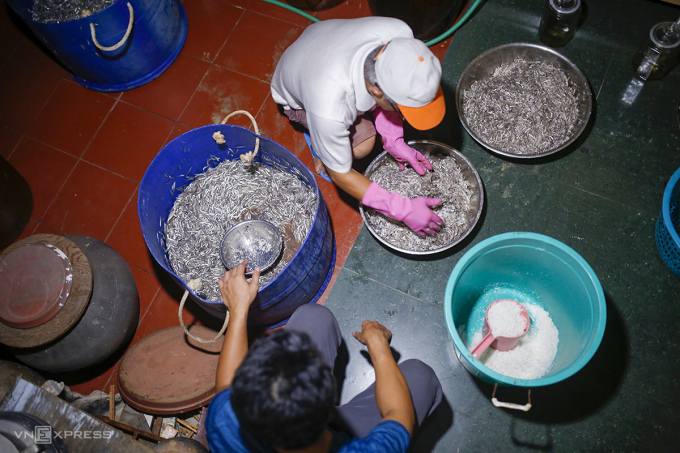
Fisherman Huynh Van Muoi mixes salt to make anchovy fish sauce at night, right after the fresh catch comes ashore. Photo: Nguyen Dong
The next morning, Mr. Muoi soaked a handkerchief in cinnamon oil and wiped the surface of the fish sauce jar clean. He wiped it every 3-4 days to prevent flies from laying eggs and breeding maggots inside the jar.
With the fish sauce jars fermenting for over three months, the fish begins to rot. Mr. Mười waits for sunny weather, uses a clean wooden stick to stir from the bottom up, leaves it in the sun for a while longer, and then covers it. The jars of fish sauce must be left in the sun for at least a year before the fish sauce can be harvested.
To extract the fish sauce, he scoops anchovies, salted for a year, into two large earthenware jars with a hole in the bottom, fitted with stainless steel taps wrapped in cloth. After opening the valve, he uses glass bowls to collect the drops of sauce. Each jar yields about one liter of fish sauce every three days. "It's called 'fish sauce drip' because it seeps from the bottom of the jar. Calling it 'fish sauce drip' in some places is inaccurate," Mr. Mười explained.
At the age of 17, Mr. Mười learned the art of making fish sauce from his father, Huỳnh Văn Mua, a famous fisherman in the Mân Thái coastal region. The people in this area only make fish sauce using anchovies – a type of silver-colored fish with small black stripes on their backs, living in saltwater, and about the size of a chopstick tip.
Fisherman Huynh Van Muoi and the anchovy fish sauce making craft in Man Thai. Video : Nguyen Dong
Fresh fish should have a silvery sheen and clear eyes. The best fish for making fish sauce is caught around April-May, when the fish come close to shore to spawn. Whenever fishermen catch schools of anchovies in the waters around Son Tra Peninsula and bring them ashore, Mr. Muoi doesn't wash them with water but mixes them with salt to make fish sauce immediately because "washing them with water, you might think it cleans them, but it takes away the taste of the sea, making the fish less fresh and the fish sauce bitter."
Mr. Mười doesn't make fish sauce from fish preserved with ice to avoid adulteration. The ratio is one kilogram of salt to three kilograms of fish. To speed up the fermentation process, the fish sauce maker uses a bowl or tray to scoop out the fish and salt according to this ratio. The fish and salt must be thoroughly mixed before being put into the jar to prevent the fish sauce from spoiling.
According to Mr. Mười, many people believe that traditional fish sauce making requires maggots to help decompose the fish, but this is a "fallacy." The fish and salt don't produce maggots; flies lay eggs at the mouth of the jar and then multiply. Anchovies salted for 12 months will decompose and produce fish sauce. To prevent maggots, the fish sauce maker must keep the jars clean.
Besides making fermented fish sauce, Mr. Mười also makes filtered fish sauce. This method is simpler and faster: just stir the fermented fish sauce in the jars, scoop it out and pour it into a large conical funnel, covered with a fine white cloth to allow the fish sauce to drain through. Once all the liquid is gone, discard the residue.
"In terms of color, fermented fish paste is lighter than filtered fish paste. As for the taste, fermented fish paste is purer and more fragrant than filtered fish paste. With a 40 kg jar of fermented fish, you can get about 12 liters of fermented fish paste. If you make filtered fish paste, you can get about 23 liters. Therefore, fermented fish paste is more expensive, selling for 160,000 VND/liter, while filtered fish paste is 80,000 VND because it utilizes almost all of the fermented fish," Mr. Muoi explained.
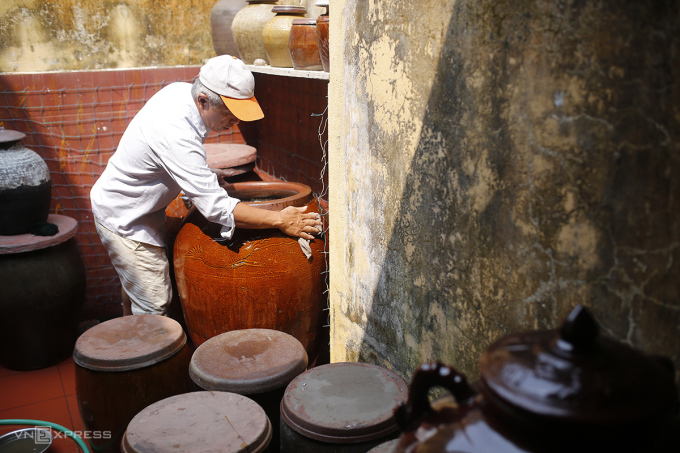
Mr. Mười uses cinnamon oil to wipe down the fish sauce jars, minimizing the chances of flies laying eggs and breeding maggots. Photo: Nguyễn Đông
In the Mân Thái coastal area, almost every household used to make fish sauce, selling it to many regions. Now, only a few people still practice the trade. During its heyday, Mr. Mười's family could ferment up to 12 tons of fish annually, selling about 700 liters of fish sauce (both filtered and unfiltered).
Mr. Mười said that traditional fish sauce has a slightly strong smell, but tastes better. Industrial fish sauce, on the other hand, has a more fragrant aroma due to added flavorings. Because it's convenient and cheaper, many people often choose to buy industrial fish sauce, and the traditional fish sauce making craft can't compete, so it's gradually dying out.
The Nam O coastal area in Hoa Hiep Nam ward, Lien Chieu district, is famous for its fish sauce making, which was recognized as a national intangible cultural heritage by the Ministry of Culture , Sports and Tourism in August 2019. However, today only about 10 households still produce fish sauce on a large scale.
Mr. Bui Thanh Phu (39 years old, owner of Huong Lang Co fish sauce brand, Nam O) said that recently many tourist groups, mainly from Europe, have visited traditional fish sauce producers to experience and enjoy local dishes dipped in fish sauce. This has also provided the locals with additional income.
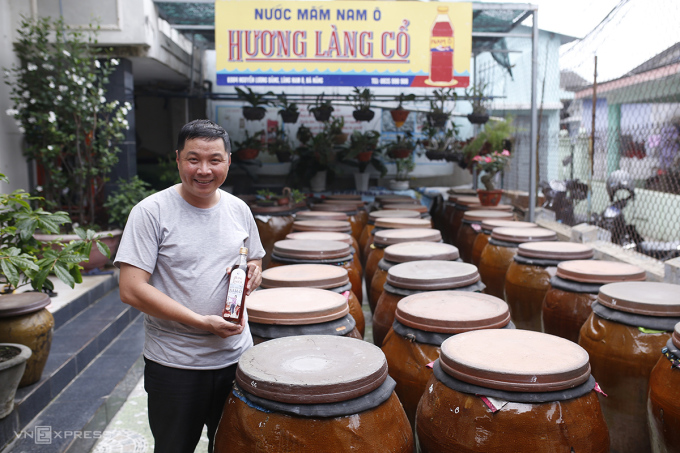
Mr. Phu with his Huong Lang Co fish sauce brand. Photo: Nguyen Dong
Mr. Mười also sells about 200 liters of fish sauce each year to Vietnamese expats who take it to the US. With coastal villages gradually disappearing due to urbanization and shrinking living spaces, to expand his fish sauce production, he has to rely on acquaintances with large yards.
People's Artist Huynh Van Hung, former Director of the Da Nang Department of Culture and Sports, said that as a coastal city with generations of fishermen who have a long tradition of seafaring and making famous anchovy fish sauce, Da Nang needs a plan to preserve this craft. "Making fish sauce is both a traditional craft and a part of the coastal culture, and it also contributes to the income of the people if it is promoted more widely," he said.
According to Mr. Hung, if fishermen continue to diligently make fish sauce without support from the government and relevant agencies and organizations, they will face significant difficulties. Fishermen in coastal areas are gradually abandoning their profession and leaving the sea. To preserve this heritage, the government should find ways to support fishermen so they can continue fishing, indirectly protecting the sovereignty of the nation.
Source link



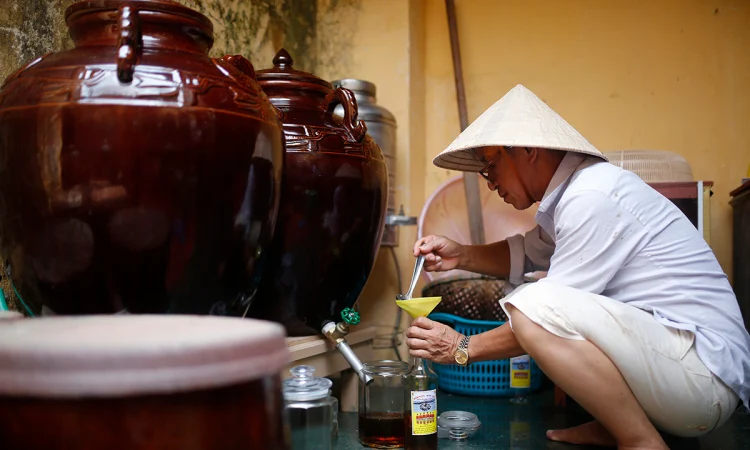
![[Photo] General Secretary To Lam working with the Central Inspection Committee](https://vphoto.vietnam.vn/thumb/1200x675/vietnam/resource/IMAGE/2026/03/05/1772718314670_a1-bnd-8682-5192-jpg.webp)


![[Photo] Prime Minister Pham Minh Chinh receives the Minister of Emergency Situations of the Russian Federation.](https://vphoto.vietnam.vn/thumb/1200x675/vietnam/resource/IMAGE/2026/03/05/1772712011395_ndo_br_thiet-ke-chua-co-ten-76-png.webp)











































































































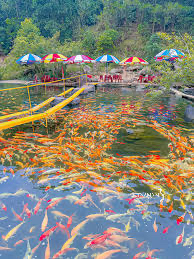

Comment (0)